

In today’s marketing world, the fusion of digital and traditional channels is essential for reaching diverse audiences. To do it well, brands need to blend technology — like identity graphs and new first-party data — an understanding of effective direct marketing techniques applied across media channels, and a focus on evolving regulatory and consumer expectations. We cannot ignore any one of these three elements; used together, they help make our marketing efforts more effective overall.
Identity graphs are like maps that bring together all the information we have about customers from different places. But not all identity graphs are created equal. An effective ID graph is one that bridges across different media identifiers and gives marketers understanding and control on the level of confidence in recognizing an individual.
First-party data is exploding and is valuable data that can be unlocked when the customer can be identified and persistently connected. When used correctly, marketing feels more personal and relevant. Plus, by connecting ad placement and customer response information through an effective ID graph, marketers can measure how well the efforts are doing, identify areas for improvement, and refine strategies to enhance overall performance. This holistic view allows for more informed decision-making and ensures that marketing initiatives are continually optimized for maximum impact.
Omnichannel marketing isn’t just about putting ads everywhere. That is simply brand awareness marketing, which can be costly and ineffective. True omnichannel is about creating a consistent experience for customers across all the ways they interact with a brand while capturing the benefits of traditional direct marketing. That could be through mail, email, online ads, or even on their TV. When done well, it feels like one smooth conversation, no matter where the customer is. It’s about understanding what they want and giving it to them.
The goal is to learn what customers like and dislike, and then tailor marketing to fit. This helps build better connections with customers.
To make all this work:
- Know Your Customers: Use identity graphs and first-party data to understand who your customers are and what they like.
- Personalize Your Messages: Use what you know about your customers to make your marketing feel more personal and relevant.
- Keep Things Compliant: Make sure you are staying in control of your customer messaging and data so that you are compliant with both government regulations and customer expectations.
- Keep Learning and Improving: Pay attention to how well your marketing is doing through thoughtful measurement and analytics and use that information to make it better over time.
Integrating digital and traditional marketing is crucial for success today. By creating a consistent experience for customers and respecting their privacy, we can make marketing that feels personal and relevant. And by always learning and improving, we can unlock the full potential of integrated marketing efforts, driving enhanced engagement and ROI.

Lets take a look at some of the recent activity in our industry around privacy and data regulations. It is important to understand what is happening not at just the federal level, but also at state and local levels because they can all impact how a brand can market to and service its customers.
Senator Maria Cantwell and Congresswoman Cathy McMorris Rodgers released draft data privacy legislation, the American Privacy Rights Act. The bill contains provisions that would significantly restrict the use of data for targeted advertising and would allow enforcement through a private right of action, among other provisions. Congressman Frank Pallone said he wants to strengthen the bill with provisions to protect children’s privacy. The Spokesman-Review, The Washington Post, Politico, Reuters, Axios, Associated Press, The Hill, Wired, and other outlets reported on the release.
Representatives Kathy Castor and Tim Walberg are introducing a House companion to the Children and Teens’ Online Privacy Protection Act, which would prohibit internet companies from collecting personal information from users under age 17 without their consent and ban targeted advertising to children and teens, Politico’s Morning Tech reported.
Ambassador Callista Gingrich encouraged Congress to pass the Kids Online Safety Act.
The FCC indicated its intent to enact broadband privacy rules after it restores net neutrality rules.
The Maryland legislature passed the Maryland Online Data Privacy Act, which would impose restrictions on how companies may collect and use the personal data of consumers in the state and the Maryland Kids Code, which would prohibit certain social media, video game and other online platforms from tracking people under 18 and from using manipulative techniques to keep young people online.The data privacy bill, modeled on the American Data Privacy and Protection Act, would require companies to minimize the data they collect about online consumers. It would also prohibit online services from collecting or sharing intimate personal information — such as data on ethnicity, religion, health, sexual orientation, precise location, biometrics or immigration status — unless it is “strictly necessary.” The Maryland Chamber of Commerce and small business owners testified against the data privacy bill.
Politico Pro noted that state privacy bills are advancing in Maine, Maryland, and Vermont despite industry opposition to their provisions.
The editorial board and a columnist at the Kennebec Journal opposed the state’s data privacy bill. The editorial argued that a federal law is a better approach and that “the potential downsides for business of a ‘comprehensive’ state-level attempt at data privacy seem to us outweigh the potential upsides.” The column predicted that the bill would be subject to legal challenges that would impose costs on the state and that “a more reasonable measure would have been more likely to find bipartisan support.”
The California Privacy Protection Agency issued an enforcement advisory stating that “data minimization principles apply to the processing of consumers’ CCPA requests.” MediaPost reported on the advisory.
Meta argued in its proceeding with the Federal Trade Commission that the Commission’s attempt to revise its 2019 privacy settlement with the company by prohibiting the company from monetizing teens’ data is “unlawful at every step.”
The Brookings Institution’s Cameron Kerryoutlined a potential scenario for enactment of comprehensive data privacy legislation in this Congress.
Federal appropriators this year renewed $15 million in funding for a program directing the National Institutes of Health and Department of Health and Human Services to lead studies examining technology’s impact on children’s development and mental health. With Congress initially allocating $15 million last year, total investment is now up to $30 million.
The FTC denied an application for a new way to obtain parental consent via a facial age estimation technology under COPPA.
The FTC has been investigating TikTok over allegations that the company and its parent company, ByteDance, deceived its users by denying that individuals in China had access to their data, and also violated a children’s privacy law, Politico reported.
A federal appeals court ruled that Meta cannot delay the FTC from reopening a probe into alleged privacy failures at Facebook, denying the company’s request for an injunction while it pursues constitutional challenges to the agency’s action.
The Kentucky legislature passed data privacy legislation that gives state residents the ability to access and request deletion of certain data. The bill provides the right to opt out of ad targeting, but that provision doesn’t apply to pseudonymous information, provided such data is kept separately from information that could be used to identify people. Consumer Reports criticized what it described as “weak definitions of sale and targeted advertising, wide exemptions for pseudonymous information, no universal opt out or authorized agent provisions, and insufficient enforcement mechanisms” and encouraged the Governor to veto the bill.
Democrats in Maineadvanced data privacy legislation out the Judiciary Committee on a party line vote. Republicans and business groups have voiced concerns about the bill.
An op-ed in The San Diego Union-Tribune encouraged the California Privacy Protection Agency to move slowly and incorporate the feedback of stakeholders in the technology industry as it develops regulations related to automated decision making and artificial intelligence.
A survey by the National Associations of State Chief Information Officers found that 25 states have created a chief privacy officer role. Twenty-four percent of respondents said they have an established privacy program in their state, while 41% said they are currently developing one and 35% said they don’t have one.

If you want to learn more about Adstra in person, here are few upcoming events that Adstra will be attending. Feel free to reach out to us and we would be happy to meet with you. You can always reach us at connect@adstradata.com.
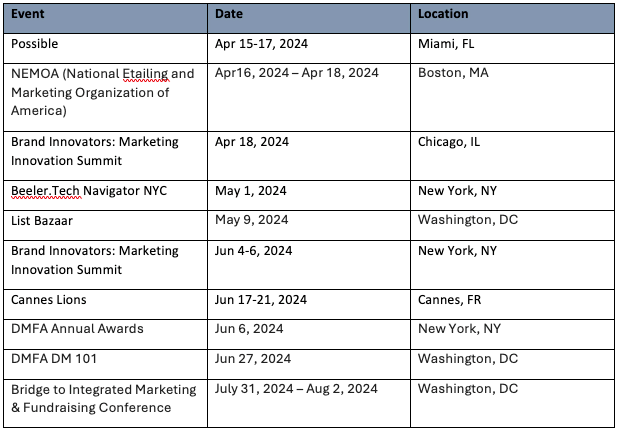

Nonprofits, Co-ops & Data Privacy: What you Need to Know!
Join Jason Bier, Adstra’s General Counsel and Chief Privacy Officer and Adstra’s President of Account Management, Britt Vatne, along with our colleagues from Wiland, Bryn Weaver and Roger Hiyama for a deep dive discussion on the major privacy impacts our industry can expect in 2024. Plus, a state specific look at consumer data laws, nonprofit laws, and so much more.
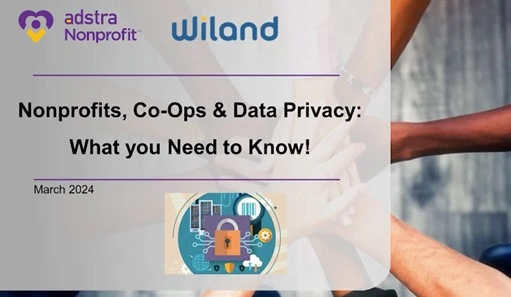
Relax. The Multi-ID Landscape is Already Here
By Lance Brothers – Chief Revenue Officer– Adstra

Why Retail Media’s Future Depends on First-Party Data Integration and Accuracy
By Suzanna Stevens – Sales Director – Adstra

Flying Under The Radar Is Not a Realistic Compliance Strategy
By Allison Schiff – AdExchanger
Sins Of The Cookie: How Third-Party Cookies Set The Industry Back
By Manny Balbin – Switchboard Software
How Trustworthy AI Ensures reliability and Ethical Use
By Billy Stewart – Digital Marketing News
Top advertising trends to watch in 2024 | Ad Age
By Ashley Joseph and Ad Age Studio 30

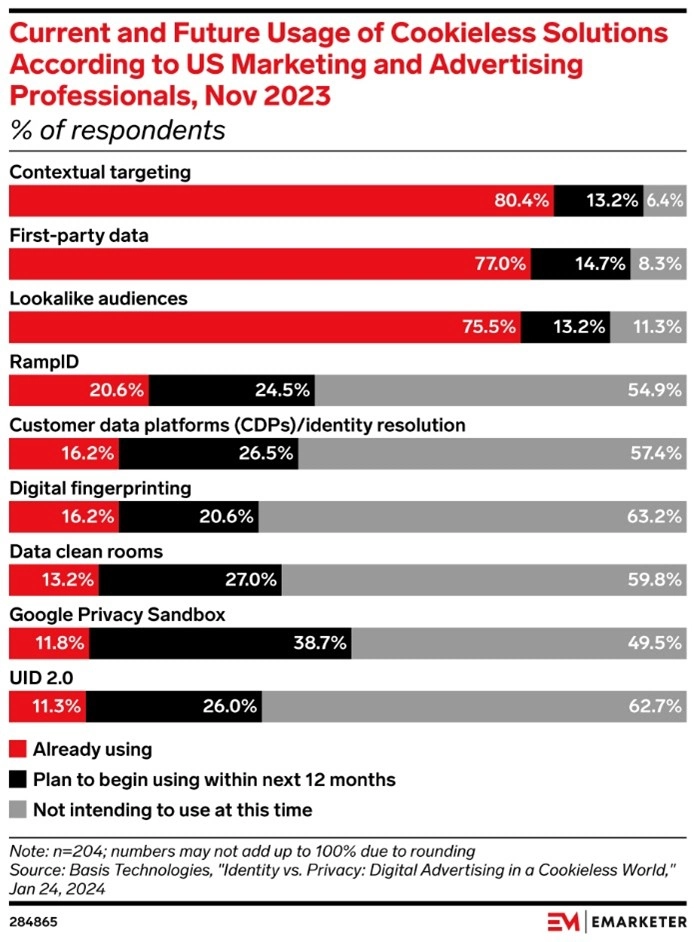
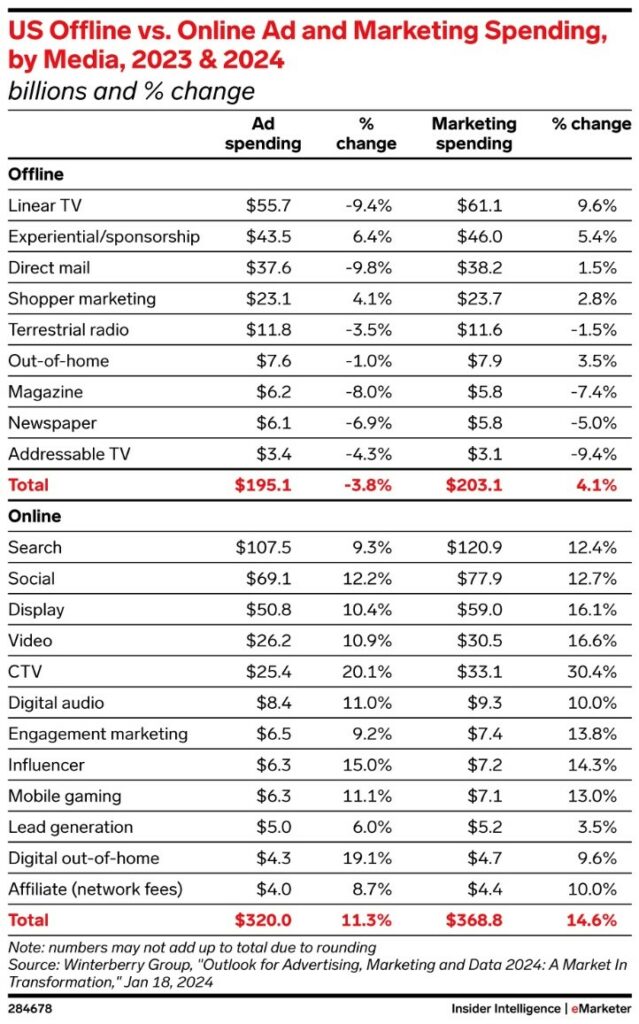
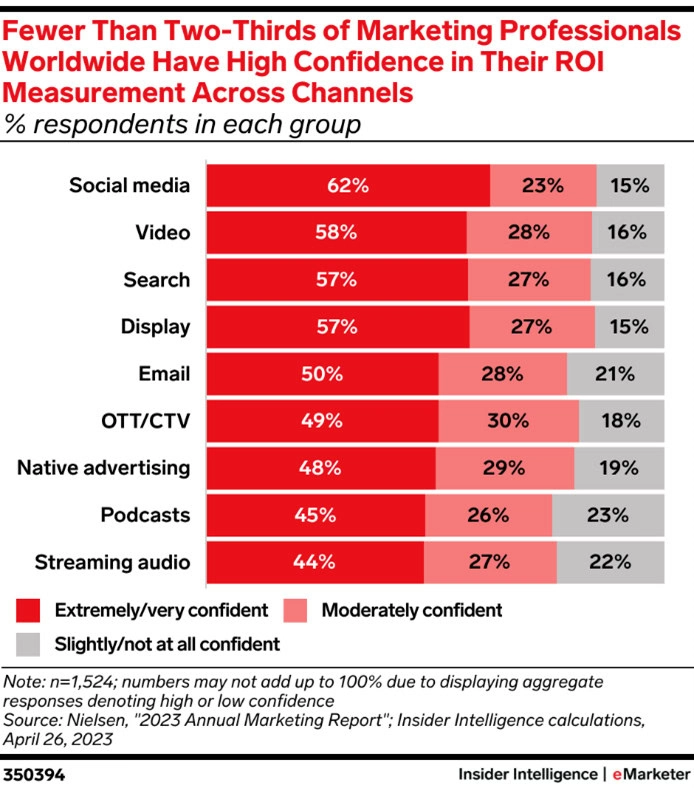
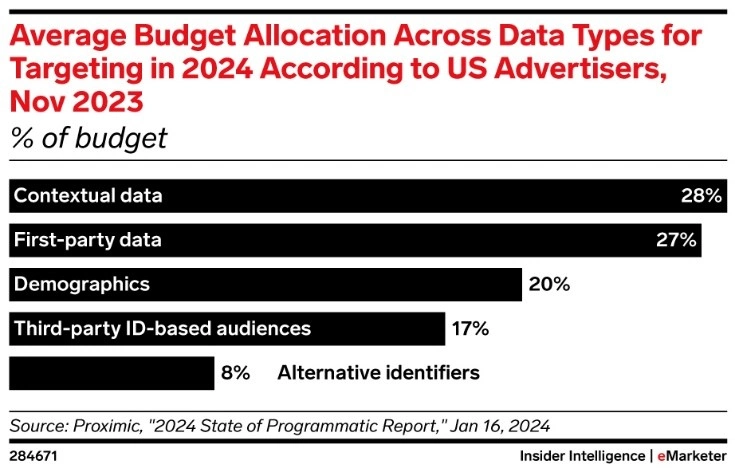
To learn more about what we do or are interested in previous newsletters, please visit our website at Adstradata.com or follow us on LinkedIn@Adstra.



